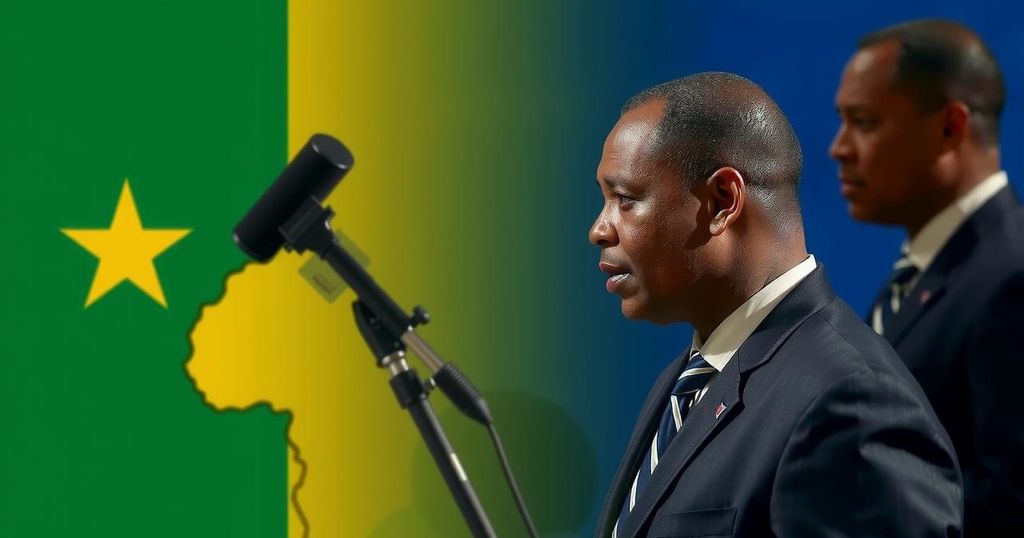Zimbabwe’s ruling party, Zanu-PF, faces allegations of interfering in elections across neighboring countries, including Botswana, Namibia, and Mozambique. Accusations include electoral meddling through campaign support and diaspora voting. Zanu-PF denies these claims, asserting its regional partnerships while emphasizing respect for democratic processes. The ongoing tensions highlight the complexities of regional politics in Southern Africa as Zimbabwe’s involvement raises questions about sovereignty and electoral integrity among its neighbors.
Zimbabwe is currently embroiled in controversy over allegations of interfering in the electoral processes of neighboring nations, particularly against the backdrop of the country’s close ties with ruling parties in Botswana, Namibia, and Mozambique. Opposition factions across these nations have accused Zanu-PF, Zimbabwe’s ruling party, of meddling in their local elections. Zanu-PF, a prominent liberation party remaining in power within Southern Africa, argues that its actions are in response to neo-colonial threats lurking in the region. Notably, the party dispatched campaign teams to assist the Front for the Liberation of Mozambique (Frelimo), supporting its new president, Daniel Chapo, ahead of the contentious October 9 elections. The Frelimo party availed itself of the opportunity to conduct campaign activities throughout Zimbabwe, specifically targeting the diaspora vote, which includes a substantial community of Mozambicans displaced by civil conflicts in their home country. In Botswana, Zanu-PF officials collaborated with the ruling Botswana Democratic Party (BDP) in preparation for the upcoming October 30 elections. Meanwhile, Namibia’s opposition has expressed outrage regarding the involvement of a South African company with ties to Zimbabwe’s President Emmerson Mnangagwa in the printing of ballot papers for the November 27 elections. Earlier this year, Zanu-PF hosted a convention for liberation parties within the Southern African Development Community (SADC), proclaiming its intent to unite against perceived threats from colonial influences. Notably absent from this convention were the parties that typically dominate the region, with the exception of South Africa’s African National Congress (ANC). Former Botswana president Ian Khama has vocally denounced alleged Zanu-PF election interference, asserting, “We just learnt that members of Zanu-PF voted in the just ended Mozambique general elections.” He warned of potential manipulation in Botswana, recalling President Mnangagwa’s public commitment to aid the Masisi administration’s election efforts. Job Sikhala, a leader of Zimbabwe’s opposition, has called on SADC to take action against Zanu-PF’s interventions, stating that, “Zanu-PF’s push for regional recognition has reached desperate levels. They are arrogantly coming out in the open declaring that they are assisting in any way possible to make sure their friends in Botswana win the forthcoming elections. That’s interference in the domestic affairs of a sovereign neighboring state. SADC can’t be silent.” However, Zimbabwe Government Spokesman Nick Mangwana has dismissed these accusations, asserting, “Zimbabwe works with any government democratically elected into office in the region. As a country, we only participate in regional elections under the ambit of SADC observer missions or under the auspices of fraternal parties.” He argued against the notion that Zimbabwe wields undue influence over regional governance, emphasizing the importance of individual political parties to earn electoral mandates independently. Following contentious elections earlier this year, Zimbabwe accused Zambian President Hakainde Hichilema of attempting to sway the August elections after the SADC electoral observation mission deemed them lacking in adherence to regional standards. Reports stemming from Zambia indicate that Zimbabwe is now allegedly supporting a bid by former Zambian president Edgar Lungu for the 2026 elections, escalating diplomatic tensions between the two nations. In light of recent events, President Mnangagwa has faced scrutiny for prematurely congratulating Frelimo on its election victory before official results were declared. Concurrently, protests have erupted within Mozambique, spearheaded by opposition parties contesting the validity of the election outcomes in favor of Frelimo. As Zimbabwe presides over the SADC, it may be compelled to address the electoral disputes intensifying in the region, prompting criticism of the President’s actions and remarks regarding upcoming elections.
The allegations surrounding Zimbabwe’s interference in the electoral processes of its neighbors stem from the ruling party’s historical involvement in regional politics. Zimbabwe’s Zanu-PF party, having survived as one of the last liberation movements in Southern Africa, has fostered alliances with ruling parties in Botswana, Namibia, and Mozambique. The assertion of neo-colonial encroachments is a recurring theme in Zanu-PF’s narrative, often used to justify its interventions. As the political climate shifts and elections loom in these neighboring countries, accusations have arisen about Zimbabwe’s involvement in campaign activities and its efforts to influence electoral outcomes, raising questions regarding sovereignty and regional diplomacy.
In conclusion, Zimbabwe’s alleged interference in the electoral affairs of Botswana, Namibia, and Mozambique has ignited significant controversy and opposition outcry. Despite denials from Zimbabwe’s government, accusations of Zanu-PF’s involvement in neighboring elections reflect deeper regional tensions and aspirations of undemocratic influence. The implications of these developments may prompt calls for heightened accountability among political entities within the Southern African region, especially under the auspices of SADC leadership.
Original Source: www.theeastafrican.co.ke






